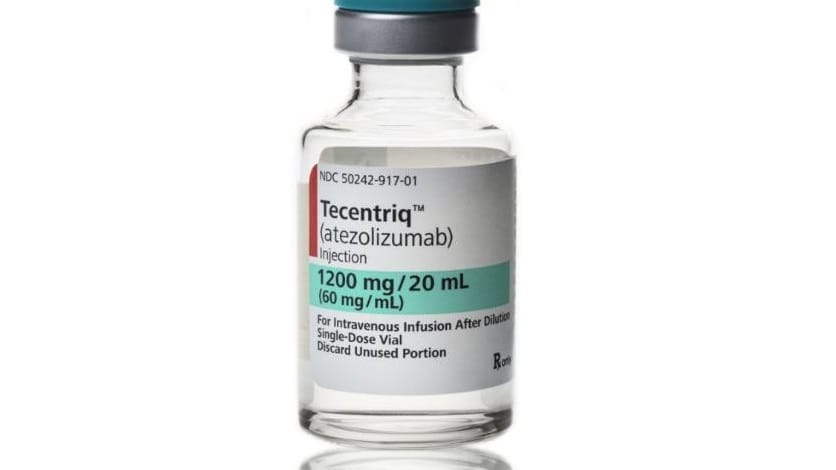
Roche’s hopes of challenging Merck & Co for a slice of the lucrative first-line non-small cell lung cancer (NSCLC) immunotherapy market have been set back after a missed trial endpoint.
Roche’s PD-L1 inhibitor Tecentriq (pemetrexed) was unable to meet the threshold for a significant improvement in overall survival (OS) when added to Eli Lilly’s Alimta (pemetrexed) and platinum chemotherapy as a front-line therapy for non-squamous NSCLC at an interim read-out in the IMpower 132 study.
There was 4.5 month numerical improvement versus chemo alone, according to Roche, and the combination cut progression-free survival (PFS) by 40%. The company is still hoping that Tecentriq will hit the OS target when final results are reported next year, but for now Merck’s PD-1 inhibitor Keytruda (pembrolizumab) – which has shown a clear OS benefit in trials – looks set to remain the preferred checkpoint inhibitor for first-line use alongside chemo in these patients.
Roche is nevertheless thinking of approaching regulators with the IMpower 132 data based on its PFS results.
“This is our third phase 3 trial in non-squamous non-small cell lung cancer demonstrating that a Tecentriq-based regimen can help reduce the risk of disease progression for people living with this disease,” said Sandra Horning, the company’s chief medical officer, adding: “We will discuss these results with health authorities globally.”
Keytruda‘s dominance in front-line NSCLC therapy – the largest market for checkpoint inhibitors to date, helped it overtake Bristol-Myers Squibb’s Opdivo (nivolumab) – which failed a major first-line NSCLC test in 2016 – as the top-selling drug in the class in the first half of this year.
Keytruda’s advance came largely on the back of its use for first-line use with chemo in the US, and as of this month Merck also has a green light for that indication in Europe, consolidating its position still further. The EU approval is for patients who have no EGFR or ALK mutations in their tumours, and was based on promising OS and PFS data from the phase 3 KEYNOTE-189 trial. Keytruda has been approved as a monotherapy for squamous and non-squamous NSCLC since 2016.
Meanwhile, Roche suffered another knockback earlier this month when its US application for a first-line combination for non-squamous NSCLC based on Tecentriq, its older cancer antibody Avastin (bevacizumab) and chemotherapy drugs carboplatin and paclitaxel – which could challenge Merck’s position – was delayed by the FDA for three months.
The company thinks Avastin may enhance Tecentriq’s activity by inhibiting local immunosuppression and boosting T-cell responses, and it is testing the combination across multiple cancer types in the hope of topping the efficacy of checkpoint inhibitor plus chemo combinations.




